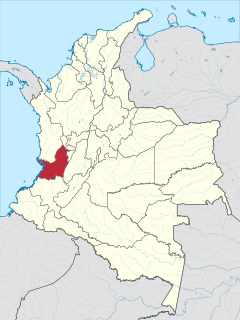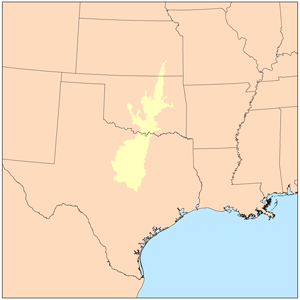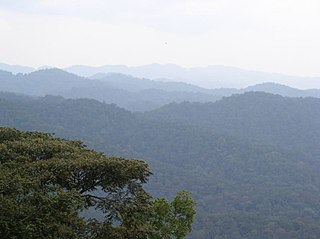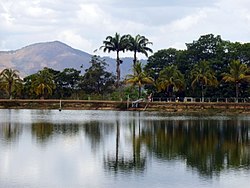
Veracruz, formally Veracruz de Ignacio de la Llave, officially the Free and Sovereign State of Veracruz de Ignacio de la Llave, is one of the 31 states which, along with Mexico City, comprise the 32 Federal Entities of Mexico. It is divided into 212 municipalities, and its capital city is Xalapa-Enríquez.

Guadalajara is a metropolis in western Mexico and the capital of the state of Jalisco. According to the 2020 census, the city has a population of 1,385,629, while the Guadalajara metropolitan area has a population of 5,268,642, making it the third-largest metropolitan area in the country. Guadalajara has the second-highest population density in Mexico, with over 10,361 people per square kilometer. Guadalajara is an international center of business, finance, arts, and culture, as well as the economic center of the Bajío region, one of the most productive and developed regions in Latin America.

Michoacán, formally Michoacán de Ocampo, officially the Free and Sovereign State of Michoacán de Ocampo, is one of the 32 states which comprise the Federal Entities of Mexico. The state is divided into 113 municipalities and its capital city is Morelia. The city was named after José María Morelos, a native of the city and one of the main heroes of the Mexican War of Independence.

Colima is a city that is the capital of the Colima state and the seat of Colima municipality, located in central−western Mexico. It is located near the Colima volcano, which divides the small state from that of Jalisco.

Nayarit, officially the Free and Sovereign State of Nayarit, is one of the 31 states that, along with Mexico City, comprise the Federal Entities of Mexico. It is divided in 20 municipalities and its capital city is Tepic.

Aragua State is located in the north-central region of Venezuela. It has plains and jungles and Caribbean beaches. The most popular are Cata and Choroni. It has Venezuela's first national park which is called Henri Pittier. The capital is Maracay, other important cities include Turmero and El Limón.

Valencia is the capital city of Carabobo State and the third-largest city in Venezuela.

Carabobo State is one of the 23 states of Venezuela, located in the north of the country, about two hours by car from Caracas. The capital city of this state is Valencia, which is also the country's main industrial center. The state's area is 4,369 km2 (1,687 sq mi) and as of the 2011 census, had a population of 2,245,744.

Valle del Cauca, or Cauca Valley, is a department of Western Colombia. It is on the western side of the country, abutting the Pacific Ocean. Its capital is Santiago de Cali. Such other cities as Buenaventura, Buga, Cartago, Palmira and Tuluá have great economical, political, social and cultural influence on the department's life. Valle del Cauca has the largest number of independent towns with over 100,000 inhabitants in the country, counting six within its borders. Buenaventura has the largest and busiest seaport in Colombia, moving about 8,500,000 tons of merchandise annually.

Cojedes State is one of the 23 states of Venezuela. The state capital is San Carlos.

Santiago de Tequila is a Mexican town and municipality located in the state of Jalisco about 60 km from the city of Guadalajara. Tequila is best known as being the birthplace of the drink that bears its name, “tequila,” which is made from the blue agave plant, native to this area. The heart of the plant contains sugars and had been used by native peoples here to make a fermented drink. After the Spanish arrived, they took this fermented beverage and distilled it, producing the tequila known today. The popularity of the drink and the history behind it has made the town and the area surrounding it a World Heritage Site. It was also named a "Pueblo Mágico" in 2003 by the Mexican federal government. Tequila has also been famous for being the prime setting in the successful Televisa telenovela Destilando Amor, starring Angélica Rivera and Eduardo Yáñez.

Zapopan is a city and municipality located in the Mexican state of Jalisco. Part of the Guadalajara Metropolitan Area, the population of Zapopan city proper makes it the second largest city in the state, very close behind the population of Guadalajara proper. It is best known as being the home of the Virgin of Zapopan, an image of the Virgin Mary which was made in the 16th century. This image has been credited with a number of miracles and has been recognized by popes and even visited by Pope John Paul II. The municipality is also the home of the Centro Cultural Universitario, which contains one of the most important concert venues in Latin America and is the home of the new stadium for the C.D. Guadalajara.

The term Cross Timbers, also known as Ecoregion 29, Central Oklahoma/Texas Plains, is used to describe a strip of land in the United States that runs from southeastern Kansas across Central Oklahoma to Central Texas. Made up of a mix of prairie, savanna, and woodland, it forms part of the boundary between the more heavily forested eastern country and the almost treeless Great Plains, and also marks the western habitat limit of many mammals and insects.

The Albertine Rift montane forests is a tropical moist broadleaf forest ecoregion in east-central Africa. The ecoregion covers the mountains of the northern Albertine Rift, and is home to distinct Afromontane forests with high biodiversity.

La Huasteca is a geographical and cultural region located partially along the Gulf of Mexico and including parts of the states of Tamaulipas, Veracruz, Puebla, Hidalgo, San Luis Potosí, Querétaro and Guanajuato. It is roughly defined as the area in which the Huastec people had influence when their civilization was at its height during the Mesoamerican period. Today, the Huastecs occupy only a fraction of this region with the Nahua people now the most numerous indigenous group. However, those who live in the region share a number of cultural traits such as a style of music and dance, along with religious festivals such as Xantolo.

The Bejuma Municipality is one of the 14 municipalities (municipios) that makes up the Venezuelan state of Carabobo and, according to the 2011 census by the National Institute of Statistics of Venezuela, the municipality has a population of 48,538. The town of Bejuma is the shire town of the Bejuma Municipality.

The Naguanagua municipality is one of the 14 municipalities (municipios) that makes up the Venezuelan state of Carabobo and, according to the 2011 census by the National Institute of Statistics of Venezuela, the municipality has a population of 157,437. The town of Naguanagua is the shire town of the Naguanagua Municipality. It forms part of the greater Valencia Metropolitan Area in Venezuela. It is in the valley of the Cabriales River at the base of Cerro El Café and the El Trigal Mountain. Valencia and Naguanagua form a continuous urban area. The highway that runs from the centre of Valencia towards Puerto Cabello passes through this community; Bolivar Avenue in Valencia becomes University Avenue in Naguanagua on the northern side of a traffic roundabout, or redoma.

The geography of Arkansas varies widely. The state is covered by mountains, river valleys, forests, lakes, and bayous in addition to the cities of Arkansas. Hot Springs National Park features bubbling springs of hot water, formerly sought across the country for their healing properties. Crowley's Ridge is a geological anomaly rising above the surrounding lowlands of the Mississippi embayment.

Toluca[toˈluka], officially Toluca de Lerdo[toˈluka ðe ˈleɾðo], is the state capital of the State of Mexico as well as the seat of the Municipality of Toluca. With a population of 910,608 as of the 2020 census, Toluca is the fifth most populous city in Mexico. The city forms the core of the Greater Toluca metropolitan area, which with a combined population of 2,347,692 forms the fifth most populous metropolitan area in the country.

The forests of Mexico cover a surface area of about 64 million hectares, or 34.5% of the country. These forests are categorized by the type of tree and biome: tropical forests, temperate forests, cloud forests, riparian forests, deciduous, evergreen, dry, moist, etc.. The agency in charge of Mexico's forests is the Comisión Nacional Forestal. Despite major reforms to the Mexican Constitution in 1992 regarding private land, Mexico would later enact major forest regulation laws in 1998 and 2003. Though no longer required to enforce land regulation in Mexico, Article 27 of the Mexican Constitution also still permits the Mexican Government to enact land regulation.
























